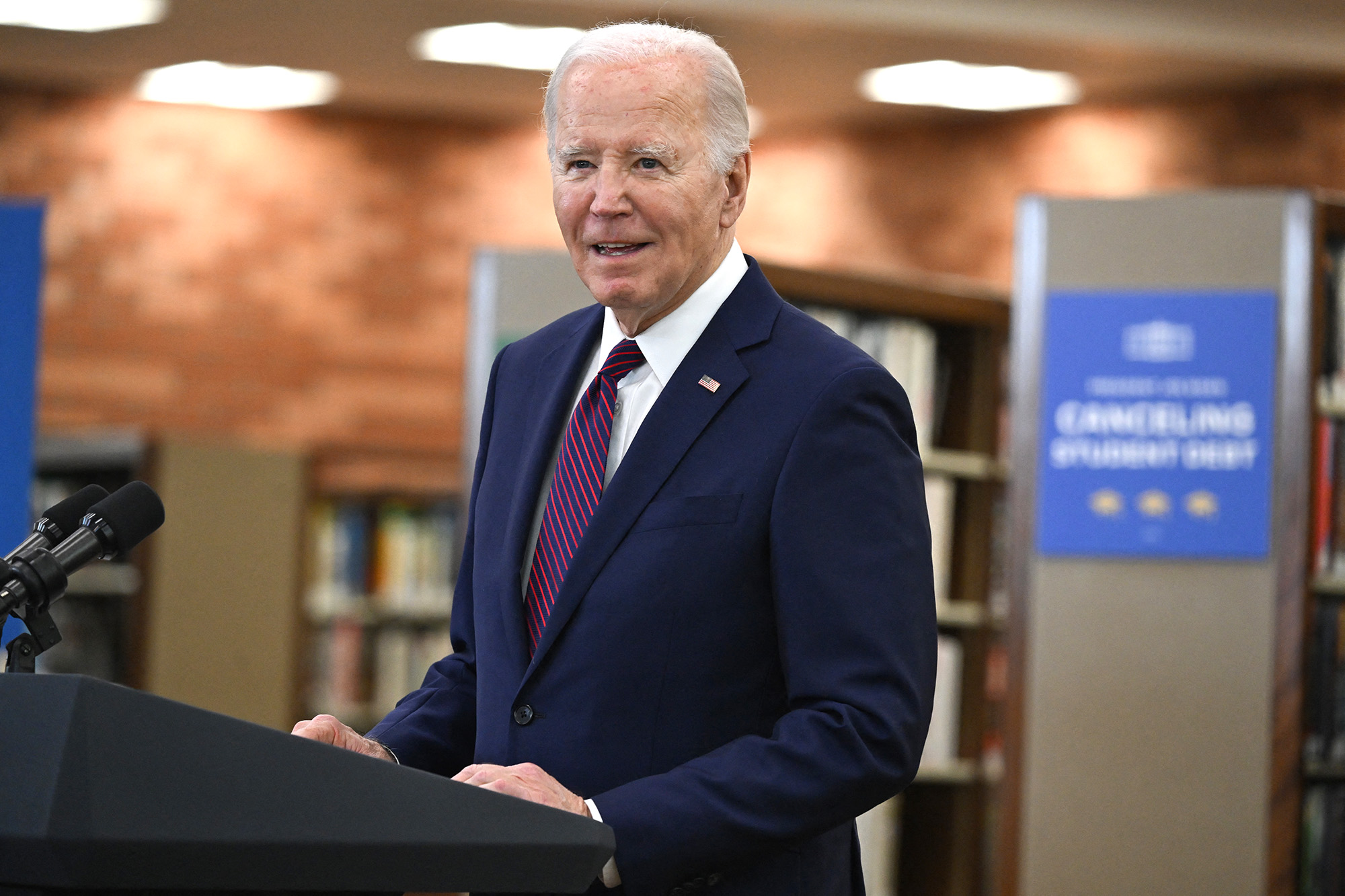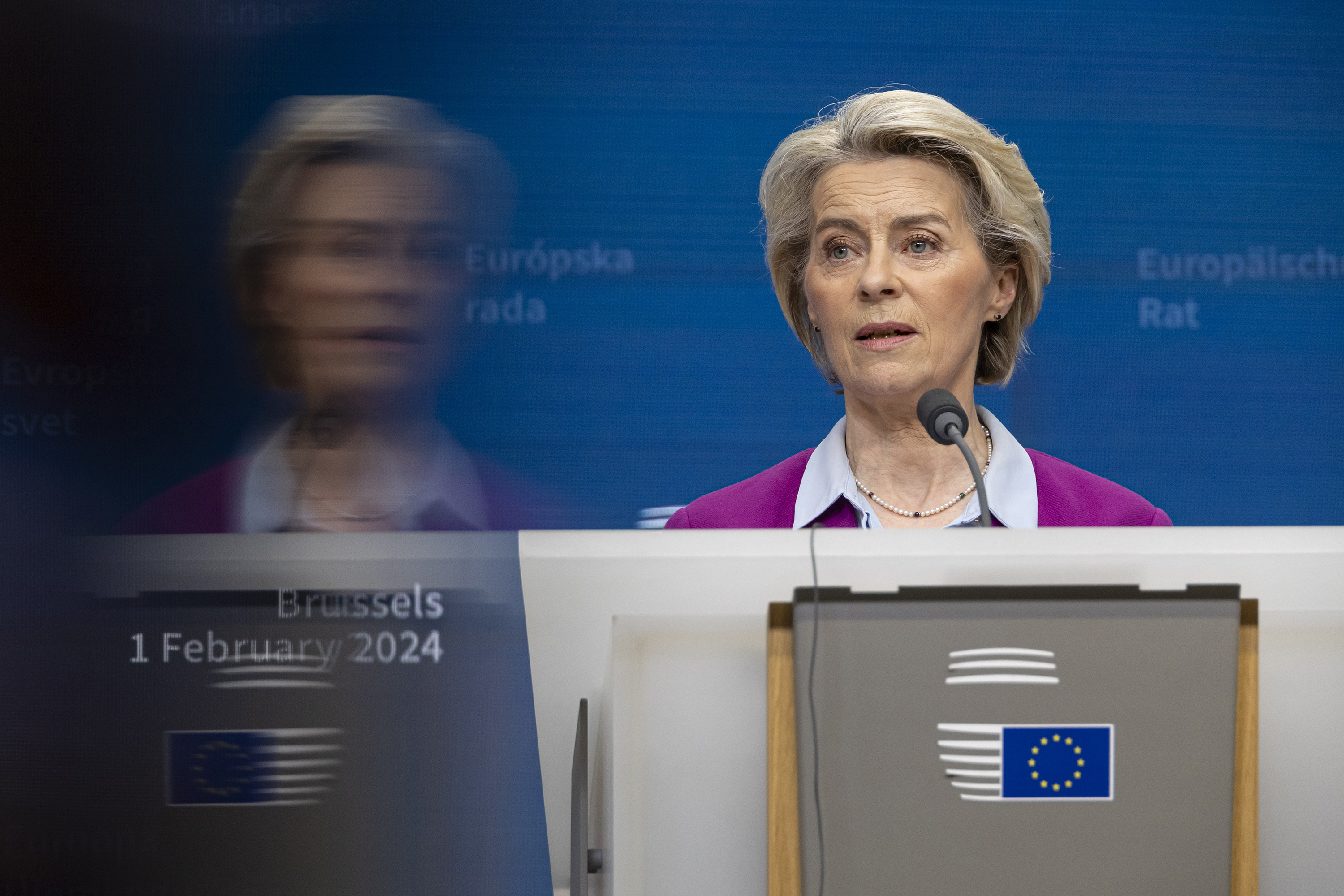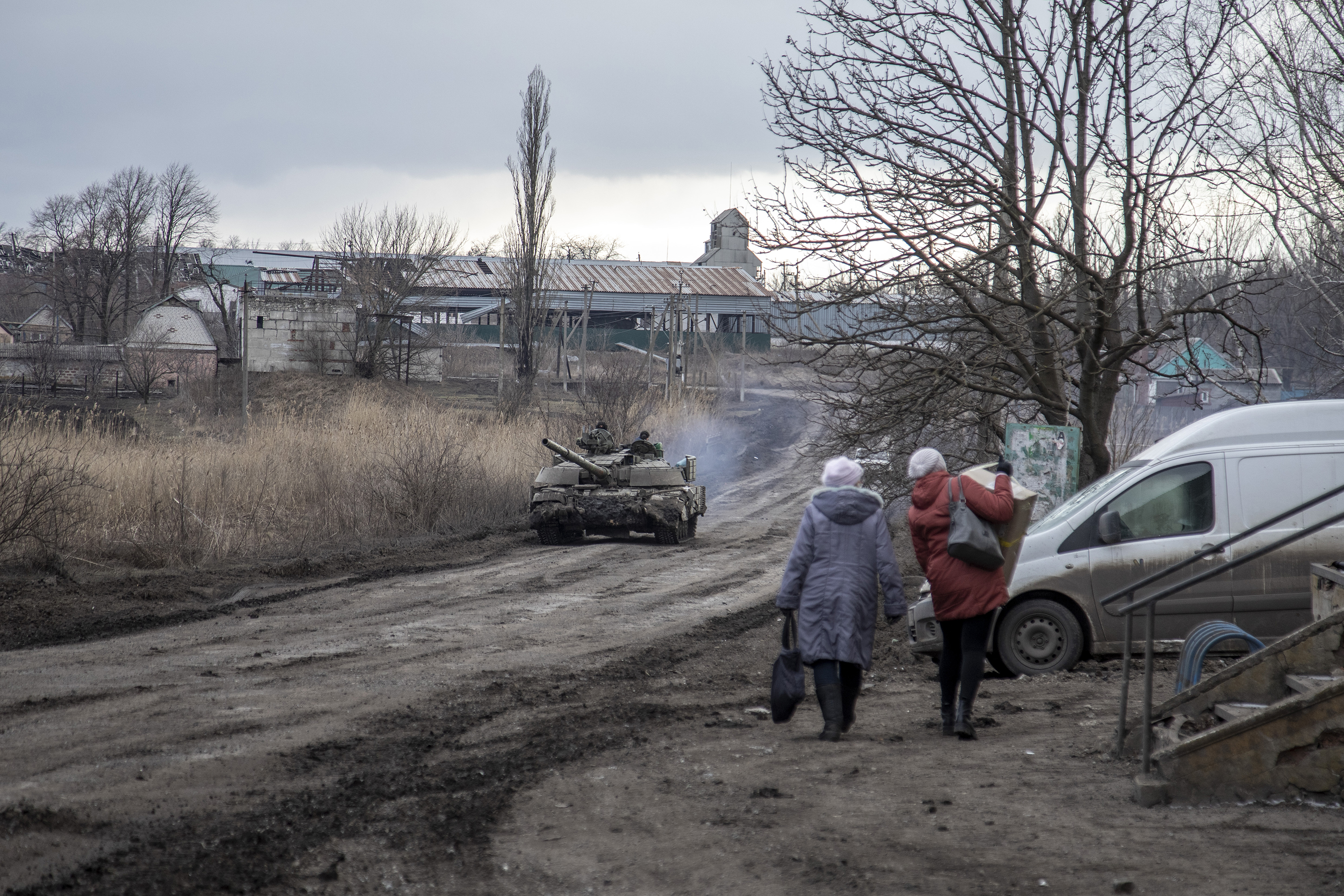Biden calls Putin a “crazy S.O.B.” Kremlin responds comments a “huge disgrace” to US
From CNN’s Anna Chernova

US President Joe Biden called Russian President Vladimir Putin a “crazy S.O.B.” at a fundraiser Wednesday in San Francisco, drawing sharp criticism from the Kremlin.
According to pool reporters traveling with the president, Biden said:
“We have a crazy S.O.B. that guy, Putin, others. And we always have to be worried about a nuclear conflict. But the existential threat to humanity is climate,” Biden said.
In response, Kremlin spokesperson Dmitry Peskov said the “rude” statements were “unlikely to offend in any way the head of another country, especially President Putin but this is a huge disgrace for the country.”
“Clearly, Mr. Biden is demonstrating behavior in the style of a Hollywood cowboy to cater to domestic political interests,” he said Thursday, responding to a question from a reporter for state-owned network Russia 1.
CNN’s Samantha Waldenberg contributed to this report.
Analysis: Europe faces difficult questions over Ukraine funding
Analysis from CNN’s Luke McGee

President of the European Commission Ursula von der Leyen speaks at a joint press conference with President of the European Council Charles Michel in Brussels, Belgium on February 1. The 27 EU leaders and heads of states discuss the 2021-2027 budgetary plan and the financial of a 50 billion Euro support package for Ukraine in addition to military, political, economic, diplomatic and humanitarian aid. Nicolas Economou/NurPhoto/Getty Images
As the world prepares to mark the second anniversary of Vladimir Putin’s Ukraine invasion, Europe must ask itself some searching questions about the war that unexpectedly erupted on its borders — and how it will approach the next 12 months.
Arguably most important among those questions: How long can it practically sustain such draining financial support for Ukraine?
While the West’s resounding support for Ukraine since 2022 has surprised many in the diplomatic world, the longer the war drags on, the more fatigue sets in as the bills grow.
Between there being no end to the conflict in sight, and competition for political attention in the Middle East — as well as domestic concerns from inflation-led cost-of-living crises around the world — spending huge sums on Ukraine could become politically harder to stomach for governments.
It’s morning in Ukraine. Here’s what you should know
From CNN staff

Civilians walk on a road as a tank drives by in a village nearby Avdiivka frontline on February 20. Narciso Contreras/Anadolu/Getty Images
President Vladimir Putin’s former speechwriter has said that discontent toward the leader is on the rise in Russian society.
Abbas Gallyamov noted that Russia’s capture of the Ukrainian town of Avdiivka will be a key factor to “suppress this discontent” and “strengthen Putin’s domestic standing” ahead of the Russian elections.
Referring to people reportedly detained across Russia over vigils for opposition figure Alexey Navalny, Gallyamov said “sooner or later this will definitely backfire” because the discontent in society is growing and “at some moment it can become very strong.”
Gallyamov said Putin is trying to get rid of all the opposition leaders to at least make discontent in Russian society be “unstructured,” “disorganized” and “leaderless” ahead of future elections.
Here are the latest developments in the region:
- US-Russia citizen charged with treason: A US-Russian dual citizen charged with treason when she visited her hometown in Russia had intended to see her grandparents and did not anticipate she would be arrested, her boyfriend told CNN. According to her American employer, she was detained because she donated $51.80 to a Ukrainian charity while she was in the US. Commenting on Karelina’s case, a Russian investigative journalist said FSB is trying to keep tabs on everyone with a US passport who comes to Russia.
- Territory disputes: Russia said it captured Krynky, a key village on the left bank of the Dnipro River in Ukraine’s southern Kherson region. But Ukraine’s armed forces have denied the claim. In eastern Ukraine, footage geolocated by CNN showed Russian forces hoisting their flag over the Donetsk village of Pobieda, near Mariinka.
- Jets down: Ukraine shot down seven Russian fighter jets over the past seven days, according to President Volodymyr Zelensky. Ukraine’s armed forces said Russia has lost 338 aircraft since the beginning of the full-scale invasion in February 2022, the general staff of Ukraine’s Armed Forces reported.
- Sanctions: The UK is sanctioning six individuals who were in charge of the “Polar Wolf” penal colony, where Russian opposition leader Navalny died last week. The US, too, will unveil a new sanctions package against Russia on Friday in response to Navalny’s death.
- Detainees drafted: Some of the men detained at vigils for Navalny in Russia’s city of St. Petersburg were handed military draft summonses, according to a human rights monitor.
- Another ambassador summoned: Canada has joined a growing list of nations that have summoned the Russian ambassador to their countries over Navalny’s death.
Former Putin speechwriter says discontent toward Putin in Russian society is on the rise
From CNN’s Mariya Knight
Discontent toward Russian President Vladimir Putin in Russian society is on the rise, according to Abbas Gallyamov, Putin’s former speechwriter.
Gallyamov noted that Russia’s capture of Avdiivka will be a key factor to “suppress this discontent” and “strengthen Putin’s domestic standing” ahead of Russian elections.
If there were no victory in Avdiivka, Putin would fail to “solidify his control” over Russia, Gallyamov told CNN’s Brianna Keilar Wednesday.
This military gain gave him “an additional injection of legitimacy” and is very beneficial for his presidential campaign.
Talking about people reportedly detained across Russia over vigils for opposition figure Alexey Navalny, Gallyamov said “sooner or later this will definitely backfire” because the discontent in society is growing and “at some moment it can become very strong.”
Gallyamov said Putin is trying to get rid of all the opposition leaders to at least make discontent in Russian society be “unstructured,” “disorganized” and “leaderless” ahead of future elections
















